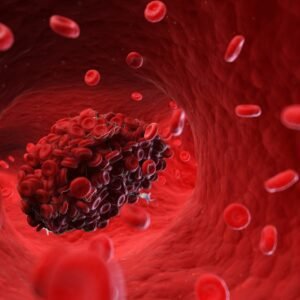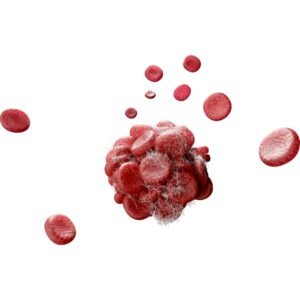Non-Alcoholic Red Wine Heart Benefits

Non-alcoholic Red Wine Heart Benefits are well-documented. My family’s history of genetic heart conditions makes this topic personally significant. Tragedy struck over 18 months. I lost my father, younger brother, and mother to heart-related issues. My mother succumbed to broken-heart syndrome after losing her husband and son. This condition, also known as stress cardiomyopathy, weakens and enlarges the heart muscle. It often results from intense emotional or physical stress.
This post offers general information about non-alcoholic red wine and its heart health benefits. However, keep in mind that I am not a medical professional. Always consult your doctor before adding any new beverage to your lifestyle. Your physician can provide guidance tailored to your specific health needs and circumstances.
Top10 key takeaways:
- Non-alcoholic red wine contains numerous beneficial phytochemicals, including resveratrol, flavonoids, and anthocyanins, which may improve memory and cognitive function through antioxidant and anti-inflammatory effects.
- Consuming non-alcoholic red wine can significantly increase plasma antioxidant capacity, potentially protecting brain cells from oxidative damage and improving blood flow to the brain.
- A study found that non-alcoholic red wine decreased systolic and diastolic blood pressure and increased plasma nitric oxide levels, potentially reducing heart disease risk by 14% and stroke risk by 20%.
- The polyphenols in non-alcoholic red wine appear to be more effective when alcohol is removed, suggesting that alcohol may impede the protective functions of these compounds.
- Non-alcoholic red wine has been shown to decrease levels of LDL cholesterol, promoting healthy blood circulation and preventing damage to blood vessels.
- The body can absorb polyphenols from non-alcoholic red wine, primarily in the small intestine and colon, though bioavailability may be slightly lower compared to regular wine.
- Non-alcoholic red wine may enhance endothelial function, supporting overall cardiovascular health by improving blood flow, reducing inflammation, and regulating blood pressure.
- While promising, many studies on the health benefits of non-alcoholic red wine have been relatively small and short-term, indicating the need for more comprehensive, long-term research.
- The polyphenol content in both alcoholic and non-alcoholic wines can vary depending on factors such as grape variety, winemaking techniques, and storage conditions.
- There is no definitive recommendation for the optimal amount of non-alcoholic red wine to consume for heart health benefits, but incorporating it into a balanced lifestyle with regular exercise and a well-rounded diet may support cardiovascular health.
What Is The Science Behind Non-Alcoholic Red Heart Benefits?

Some intriguing findings:
The information provided here comes from the study “Dealcoholized Red Wine Decreases Systolic and Diastolic Blood Pressure and Increases Plasma Nitric Oxide.” There may be other studies examining the effects of dealcoholized red wine on heart health. I am not aware of them.
Here’s what we can gather:
- The Harvard Health article mentions that the findings from this Spanish study “need to be confirmed in other studies,” suggesting that at the time of writing (2012), there weren’t many comparable studies.
- The article also notes that what’s missing is information on “how non-alcoholic red wine stacks up against regular red wine for preventing heart attacks or other cardiovascular problems.” This implies that more comprehensive, long-term studies were needed to fully understand the cardiovascular effects of dealcoholized red wine.
- Dr. Deepak Bhatt, a cardiologist and professor at Harvard Medical School, described the Spanish study as “provocative” and called for “larger studies that follow patients for a longer period of time” to confirm the findings.
With this in mind it’s important to note that the information provided here comesi primarily from this 2012 published study. There may have been more recent studies conducted on zero alcohol red wine and heart health. However, I’m not aware of them.
What we do know from this one study is the following:
- Blood Pressure Reduction: A study conducted at the Hospital Clinic of Barcelona found that non-alcoholic red wine led to a significant decrease in blood pressure, potentially reducing heart disease risk by 14% and stroke risk by 20% This effect was not observed with regular red wine or gin.
- Antioxidant Effectiveness: Both alcoholic and non-alcoholic red wines contain the same amount of heart-healthy antioxidants called polyphenols. However, the absence of alcohol in non-alcoholic red wine may allow these polyphenols to function more effectively.
- Nitric Oxide Production: Non-alcoholic red wine was associated with increased plasma nitric oxide levels. Nitric oxide is a molecule that helps blood vessels relax, improving blood flow to the heart and organs. Non-alcoholic red wine was found to increase plasma nitric oxide levels in study participants. Nitric oxide is a molecule that helps relax blood vessels, which improves blood flow to the heart and other organs.This information comes from the same study as stated above entitled, “Dealcoholized Red Wine Decreases Systolic and Diastolic Blood Pressure and Increases Plasma Nitric Oxide”
- Comparison with Alcoholic Red Wine: While regular red wine has been linked to some cardiovascular benefits, this study suggests that alcohol may actually impede the protective functions of polyphenols.
- Potential Mechanisms: The polyphenols in red wine, particularly resveratrol, are believed to be responsible for many of its health benefits. These compounds have antioxidant properties that can help protect against oxidative stress, which is linked to various diseases including heart disease.
- Moderation and Alternatives: While these findings are promising, it’s important to note that the studies were relatively small and short-term. Experts emphasize that more research is needed to confirm these results. Additionally, whole grapes and berries are considered better sources of resveratrol than wine.
What’s The Difference Between Polyphenols, Phytochemicals, And Flavonoids?

The relationship between polyphenols, phytochemicals, and flavonoids can be understood as a hierarchy.
Each category is a subset of the previous one:
- Phytochemicals: Phytochemicals are the broadest category, encompassing all naturally occurring compounds found in plants. They include a wide range of substances that plants produce to protect themselves and promote their survival.
- Polyphenols: Polyphenols are a specific subgroup of phytochemical. They are characterized by their chemical structure, which includes at least one aromatic ring with one or more hydroxyl groups. Over 500 distinct polyphenols have been identified.
- Flavonoids: Flavonoids are a subclass of polyphenols. They are one of the main types of polyphenols, along with phenolic acids, stilbenes, and lignans.
Key differences:
- Scope: Phytochemicals include all plant compounds, polyphenols are a subset of phytochemicals, and flavonoids are a subset of polyphenols.
- Chemical structure: Polyphenols have a specific structure with aromatic rings and hydroxyl groups, while phytochemicals can have various structures. Flavonoids have a specific type of polyphenol structure.
- Sources: While all are found in plant-based foods, certain foods are particularly rich in specific compounds. For example, soybeans are rich in isoflavones (a type of flavonoid), while berries and dark chocolate are good sources of various polyphenols.
- Health benefits: While there is overlap, each category may offer slightly different health benefits. For instance, flavonoids have been associated with a lower risk of type 2 diabetes, while polyphenols in general have been linked to various benefits including improved heart health and anti-inflammatory effects.
In summary, phytochemicals are the overarching category, polyphenols are a specific type of phytochemical, and flavonoids are a specific type of polyphenol. All contribute to the health benefits associated with plant-based diets, but in slightly different ways due to their unique chemical structures and properties.
What Are The Health Benefits of Specific Phytochemicals in Alcohol-Free Red Wine That Improve Memory?

These phytochemicals are believed to work through various mechanisms, including:
Alcohol-free red wine contains several phytochemicals that may offer health benefits, including potential improvements to memory. The key phytochemicals and their potential benefits include:
- Resveratrol: This polyphenol is one of the most well-known compounds in red wine. Resveratrol has antioxidant and anti-inflammatory properties that may help protect brain cells and improve cognitive function.
- Flavonoids: These compounds, including quercetin and catechins, are potent antioxidants that can help reduce oxidative stress in the brain. They may also improve blood flow to the brain, potentially enhancing memory and cognitive performance.
- Anthocyanins: These pigments give red wine its color and have been associated with improved memory and cognitive function. They may help protect brain cells from damage and reduce inflammation.
- Proanthocyanidins: These compounds have been linked to improved blood flow and may help protect brain cells from oxidative stress.
The health benefits of these phytochemicals in alcohol-free red wine that may contribute to improved memory include:
- Increased antioxidant capacity: Studies have shown that consuming alcohol-free red wine can significantly increase plasma antioxidant capacity, which may help protect brain cells from oxidative damage.
- Improved blood flow: Some of the compounds in red wine, particularly flavonoids, may help improve blood flow to the brain, potentially enhancing cognitive function and memory.
- Reduced inflammation: The anti-inflammatory properties of resveratrol and other polyphenols may help protect brain cells and support overall cognitive health.
- Neuroprotective effects: Several phytochemicals in red wine have been shown to have neuroprotective properties, which may help prevent age-related cognitive decline and support memory function
It’s important to note that while these potential benefits are promising, more research is needed to fully understand the effects of alcohol-free red wine on memory and cognitive function. Additionally, the concentration of these beneficial compounds can vary depending on the type of grapes used and the wine-making process. Consuming alcohol-free red wine may be a healthier alternative to regular wine for those looking to enjoy the potential benefits of these phytochemicals without the negative effects of alcohol. However, it’s always best to consult with a healthcare professional before making significant changes to your diet or lifestyle.
What Are Polyphenols In Non-Alcoholic Red Wine And How Do They Benefit Heart Health?

Non-alcoholic red wine contains many of the same beneficial polyphenols found in regular red wine, which can provide several heart health benefits: The main polyphenols in non-alcoholic red wine include:
- Flavonoids: Quercetin, catechin, and epicatechin
- Anthocyanins
- Resveratrol
- Phenolic acids: Caffeic, caftaric, and coutaric acids
What Are Examples of Low Sugar Non Alcoholic Reds?
- YOURS Non-Alcoholic California Red Blend: 6.8 calories and 0.68g sugar per 100mL
- Sovi Reserve Red: 10 calories and 1.3g sugar per 100mL
- Joyus Cabernet Sauvignon: 16.7 calories and 1.3g sugar per 100mL
- Alcohol Removed Cabernet Sauvignon: 13.3 calories and 1.3g sugar per 100mL
- Edenvale Non-Alcoholic Grenach Shiraz Mataro: 10 calories and 1.8g sugar per 100mL
- Naughty Red: 14 calories and 2.5g sugar per 100mL
- Lautus Non-Alcoholic Red: 12 calories and 3g sugar per 100mL
- Edenvale Non-Alcoholic Tempranillo Cabernet Sauvignon: 14 calories and 3g sugar per 100mL
- Luminara Red Blend: 20 calories and 3.2g sugar per 100mL
- Edenvale Shiraz: 17 calories and 3.8g sugar per 100mL
- Edenvale Cabernet Sauvignon: 18 calories and 3.9g sugar per 100mL
- Edenvale Premium Reserve Pinot Noir: 20 calories and 4.3g sugar per 100mL
- Leitz Eins-Zwei-Zero Pinot Noir: 21 calories and 4.9g sugar per 100mL
What Are The Health Benefits of Flavonoids?

Quercetin, catechin, and epicatechin are flavonoids that offer several potential health benefits:
- Antioxidant effects: These compounds act as powerful antioxidants, helping to neutralize free radicals and reduce oxidative stress in the body.
- Cardiovascular health: They may help improve heart health by reducing endothelial dysfunction, lowering blood pressure, and decreasing inflammation. Epicatechin, in particular, may contribute to the cardioprotective effects of cocoa and tea.
- Anti-inflammatory properties: Quercetin and catechins have been shown to have anti-inflammatory effects, which may help in reducing the risk of various chronic disease.
- Cancer prevention: Some studies suggest these flavonoids may have anti-cancer properties, potentially helping to kill cancer cells and prevent tumor growth.
- Blood sugar control: Quercetin may help control blood sugar levels, which could be beneficial for people with diabetes.
- Neuroprotective effects: Catechins, especially those found in tea, may have neuroprotective properties and could potentially help in preventing age-related cognitive decline.
- Gut health: These flavonoids may positively modulate gut microbiota, promoting beneficial strains and suppressing pathogenic one.
- Immune system support: Quercetin has shown potential in boosting the immune system and may have antiviral properties.
- Weight management: Some studies suggest these compounds may have anti-obesity effects, though more research is needed in this area.
- Liver and kidney protection: Quercetin has been shown to decrease lipid peroxidation in liver tissues and may offer protection against certain kidney problems.
It’s important to note that while many of these benefits have been observed in laboratory and animal studies, more human clinical trials are needed to fully understand the effects and optimal dosages of these flavonoids. Additionally, the bioavailability and metabolism of these compounds can vary, which may affect their efficacy in the body.
What Are The Health Benefits of Anthocyanins?

Anthocyanins, the pigments responsible for red, purple, and blue colors in many fruits and vegetables, offer several health benefits.
Some of these benefits are as follows:
- Antioxidant and anti-inflammatory properties: Anthocyanins are powerful antioxidants that fight free radicals and reduce inflammation in the body.
- Cardiovascular health: These compounds may help lower blood pressure and reduce the risk of atherosclerosis by decreasing plaque buildup in arteries.
- Brain function: Anthocyanins can protect and improve brain function, potentially reducing the risk of age-related cognitive decline and neurodegenerative diseases.
- Cancer prevention: Studies suggest that anthocyanins may slow or stop cancer growth by inhibiting tumor formation, reducing cancer cell proliferation, and inducing apoptosis (programmed cell death) in cancer cells.
- Diabetes management: Anthocyanins may help improve insulin sensitivity and glucose metabolism, potentially reducing the risk of type 2 diabetes.
- Eye health: These compounds can enhance night vision and overall eye health by protecting against free radical damage and inflammation.
- Weight management: Some studies indicate that diets rich in anthocyanins may be associated with lower body fat and reduced risk of obesity.
- Antimicrobial effects: Anthocyanins have shown antibacterial properties against various pathogens, potentially helping to fight infections.
- UV protection: Test-tube studies suggest that anthocyanin pigments may help protect skin from UV radiation damage.
While these benefits are promising, it’s important to note that much of the research is still ongoing, and more studies are needed to fully understand the effects of anthocyanins on human health. The best way to incorporate anthocyanins into your diet is through consuming a variety of colorful fruits and vegetables, rather than relying on supplements.
What Are The Health Benefits of Resveratrol?

Key health benefits associated with resveratrol:
- Antioxidant and Anti-inflammatory Properties: Resveratrol acts as a powerful antioxidant, protecting cells from damage caused by free radicals. This antioxidant action helps reduce inflammation, which is a contributing factor to many chronic diseases, including diabetes and cardiovascular diseases.
- Cardiovascular Health: Resveratrol has been shown to have cardioprotective effects. It helps lower LDL (bad) cholesterol, prevents blood clots, and reduces blood pressure by promoting the production of nitric oxide, which relaxes blood vessels. These effects collectively help in reducing the risk of heart disease.
- Brain Health: Resveratrol’s anti-inflammatory and antioxidant properties may protect brain cells from damage, potentially reducing the risk of neurodegenerative diseases like Alzheimer’s and dementia. Some studies have shown that resveratrol can stabilize neurological biomarkers in patients with Alzheimer’s disease.
More Health Benefits:
- Diabetes Management: Resveratrol has shown promise in improving insulin sensitivity and lowering blood sugar levels. It may also prevent complications associated with diabetes by reducing oxidative stress and inflammation.
- Cancer Prevention: Resveratrol exhibits anti-tumor effects by inhibiting cancer cell growth, cell signaling, and angiogenesis, and promoting cancer cell death. It may also enhance the effectiveness of chemotherapy by blocking chemotherapy-resistant proteins.
- Joint Health: Resveratrol may help protect cartilage from deterioration, which is beneficial for individuals with arthritis. This can lead to reduced joint pain and improved mobility.
- Dosage and Safety: While resveratrol is generally considered safe, high doses (up to 3,000 milligrams per day) can cause gastrointestinal issues like nausea and diarrhea. It is also important to note that resveratrol can interact with certain medications, such as blood thinners, and may not be suitable for individuals with bleeding disorders or estrogen-sensitive conditions.In summary, resveratrol offers a range of potential health benefits, particularly in the areas of cardiovascular health, brain function, diabetes management, and cancer prevention. However, more research is needed to fully understand its effects and optimal dosages for humans.
What Are The Health Benefits of Phenolic Acids (Caffeic Acid, Caftaric Acid, and Coutaric Acid?

Phenolic acids like caffeic acid, caftaric acid, and coutaric acid offer several potential health benefits:
- Antioxidant activity: These compounds are potent antioxidants that can neutralize free radicals and reduce oxidative stress in the body. Caffeic acid, in particular, has been shown to significantly inhibit DNA damage caused by free radicals.
- Anti-inflammatory effects: Phenolic acids exhibit anti-inflammatory properties, which may help in managing chronic inflammatory conditions.
- Anticancer potential: Caffeic acid has demonstrated antitumor effects against several human cancers by inhibiting cancer cell growth. It may also inhibit the HDM histone demethylase oncoprotein gene during cancer progression.
- Neuroprotective effects: Caffeic acid has shown neuroprotective properties against amyloid-β-mediated neurotoxicity by blocking calcium influx and tau phosphorylation. This may contribute to preventing neurodegeneration and brain injury.
- Cardiovascular health: Consumption of foods rich in these phenolic acids may have protective effects on cardiovascular health. Some studies suggest they may help in managing hypertension and improving vascular function.
- Metabolic health: Chlorogenic acids, which are related compounds, have shown potential benefits in managing obesity, type 2 diabetes mellitus, and metabolic syndrome.
- Liver health: Some research indicates that chlorogenic acids may help attenuate fructose-induced liver insulin resistance.
- Reduced oxidative stress: Consumption of foods rich in these compounds has been associated with decreased urinary isoprostane levels, suggesting reduced oxidative stress in certain populations.
It’s important to note that while these phenolic acids show promising health benefits, more research is needed to fully understand their effects. Many studies have been conducted in vitro or in animal models, and more human clinical trials are required to confirm these potential health benefits. Additionally, the co-occurrence of other bioactive compounds in the main dietary sources of these phenolic acids (like coffee, wine, and fruits) can make it challenging to isolate the specific effects of caffeic, caftaric, and coutaric acids
How Do Polyphenols In Non-Alcoholic Red Wine Compare To Those In Regular Wine?
Here’s how the polyphenol content compares:
- Polyphenol retention: The process of removing alcohol from wine does not significantly affect its polyphenol content. Non-alcoholic red wine still contains abundant polyphenols, including resveratrol, quercetin, and other antioxidants.
- Concentration: A typical bottle of red wine contains approximately 1.8 g/L of total polyphenols, while white wine contains only 0.2-0.3 g/L. A glass of red wine provides about 200 mg of polyphenols compared to 30 mg in white wine.
- Health benefits: Studies have shown that the polyphenols in non-alcoholic red wine provide similar health benefits to those in regular red wine. These include reducing blood pressure, lowering cholesterol, and improving overall antioxidant status.
- Absorption: Some research suggests that the absence of alcohol may actually improve the body’s ability to absorb and utilize polyphenols. A study found that alcohol-free red wine caused significant increases in plasma antioxidant capacity and polyphenol concentrations 50 minutes after ingestion.
- Comparative effects: In some cases, non-alcoholic red wine has been found to outperform regular red wine in health benefits. For example, one study showed that non-alcoholic red wine was more effective at reducing blood pressure and total cholesterol compared to regular red wine.
- Variability: The polyphenol content in both alcoholic and non-alcoholic wines can vary depending on factors such as grape variety, winemaking techniques, and storage conditions.
How Does The Body Absorb Polyphenols From Non-Alcoholic Red Wine?

Here are the key points about polyphenol absorption from non-alcoholic red wine:
- Polyphenol retention: Non-alcoholic red wine still contains abundant polyphenols after the alcohol removal process. These polyphenols include flavonoids, resveratrol, and phenolic acids.
- Absorption in the gut: Most polyphenols are absorbed in the small intestine and colon. The absence of alcohol does not prevent this absorption, as polyphenols can be taken up by intestinal cells directly.
- Bioavailability: Some studies suggest that the bioavailability of certain polyphenols may be slightly lower in non-alcoholic wine compared to regular wine. This is because alcohol can enhance the solubility and extraction of some polyphenols.
- Metabolic transformation: Once absorbed, polyphenols undergo metabolic transformations in the liver and other tissues, forming conjugates that circulate in the bloodstream
- Blood levels: Consumption of non-alcoholic red wine can still raise blood levels of polyphenols, indicating successful absorption.
- Health benefits: Non-alcoholic red wine has been shown to provide health benefits similar to regular red wine, such as reducing blood pressure and total cholesterol, suggesting effective absorption and utilization of polyphenols.
- Individual variations: The absorption of polyphenols can vary between individuals due to factors like gut microbiota composition, which plays a role in metabolizing these compounds.
How Does Endothelial Function Relate to Phytochemicals, Polyphenols, and Flavonoids?
Endothelial function is closely related to phytochemicals, polyphenols, and flavonoids in several important ways:
- Protective effects: Phytochemicals, particularly polyphenols and flavonoids, have been shown to exert protective effects on endothelial cells. These compounds can improve endothelial function and inhibit platelet aggregation in humans.
- Antioxidant activity: Flavonoids and polyphenols act as powerful antioxidants, helping to combat oxidative stress in endothelial cells. They scavenge free radicals and reduce the production of reactive oxygen species (ROS), which are major contributors to endothelial dysfunction.
- Anti-inflammatory properties: These natural compounds demonstrate anti-inflammatory effects, which are crucial for maintaining healthy endothelial function. They can suppress inflammatory markers and adhesion molecules associated with endothelial dysfunction.
- Nitric oxide (NO) regulation: Flavonoids have been found to enhance the production and bioavailability of nitric oxide, a key molecule in regulating vascular tone and endothelial function. This can lead to improved endothelium-dependent vasodilation.
- Signaling pathway modulation: Phytochemicals can influence various signaling pathways involved in endothelial function. For example, ginkgolide B has been shown to activate the Akt/eNOS signaling pathway, promoting endothelium-dependent relaxation.
- Cardiovascular disease prevention: Regular consumption of foods rich in polyphenols and flavonoids, such as fruits and vegetables, has been associated with improved endothelial function and reduced risk of cardiovascular diseases.
- Biomarker modulation: These compounds can positively influence various biomarkers of endothelial function, including oxidative stress markers, inflammatory mediators, and coagulation factors.
- Vascular homeostasis: By supporting endothelial function, phytochemicals contribute to maintaining vascular homeostasis, which is crucial for overall cardiovascular health.
In summary, phytochemicals, particularly polyphenols and flavonoids, play a significant role in protecting and enhancing endothelial function through their antioxidant, anti-inflammatory, and signaling pathway-modulating properties. This relationship underscores the importance of a diet rich in fruits, vegetables, and other plant-based foods for maintaining cardiovascular health.
How Does Non-Alcoholic Red Wine Enhance Endothelial Function?

Endothelial function refers to the ability of the the inner lining of blood vessels to regulate vascular tone. It also may help maintain cardiovascular health.
The endothelium plays a crucial role in:
- Regulating blood flow and vascular tone by releasing vasodilators like nitric oxide.
- Controlling inflammation and oxidative stress.
- Preventing thrombosis and maintaining blood fluidity.
- Regulating vascular permeability.
Healthy endothelial function:
- Vasodilation in response to stimuli
- Anti-thrombotic and anti-inflammatory properties
- Tightly controlled vascular permeability
- Polyphenols: Red wine contains high levels of polyphenols, particularly resveratrol, which have antioxidant and anti-inflammatory properties. These compounds can improve nitric oxide bioavailability and reduce oxidative stress.
- Increased nitric oxide production: The polyphenols in red wine stimulate endothelial nitric oxide synthase (eNOS). This may increase production of nitric oxide, a potent vasodilator.
- Reduced oxidative stress: Antioxidants in red wine help neutralize free radicals and reduce oxidative damage to the endothelium.
- Anti-inflammatory effects: Polyphenols in red wine can suppress inflammatory processes that contribute to endothelial dysfunction.
- Improved lipid profile: Regular consumption of non-alcoholic red wine may help improve HDL cholesterol levels. It may also reduce LDL oxidation, both of which contribute to better endothelial health.
Enhancing Endothelial Function:
By enhancing endothelial function, non-alcoholic red wine may help reduce the risk of cardiovascular diseases, including atherosclerosis and hypertension. However, it’s important to note that while these benefits have been observed in studies, more research is needed. More research is required to fully understand the optimal consumption patterns for non-alcoholic red wine in relation to endothelial function.
Enhancing endothelial function is a key component in maintaining a healthy cardiovascular system. The endothelium is a thin layer of cells lining the blood vessels. They play a crucial role in regulating blood flow, blood pressure, and overall vascular health.
Research suggests that non alcoholic red wine can contribute to enhancing endothelial function. This is due to its high levels of polyphenols and antioxidants. These compounds have been shown to help relax blood vessels, improve blood flow, and reduce inflammation within the endothelium.
By promoting endothelial function, non alcoholic red wine may support improved overall cardiovascular health. Healthy endothelial cells have the ability to prevent blood clots from forming. They regulate blood pressure, and reduce the risk of developing atherosclerosis. Incorporating non-alcoholic red wine into a balanced lifestyle can support endothelial function and reduce cardiovascular disease risk. Combining it with regular exercise and a well-rounded diet is key.
Can Non-Alcoholic Red Wine Help Lower Cholesterol Levels?

Non-alcoholic red wine can indeed help lower cholesterol levels. Several studies and sources highlight the benefits of non-alcoholic red wine in reducing bad (LDL) cholesterol and improving overall heart health. For example, the study stated at the beginning of this blog (published in the journal Applied Microbiology and Biotechnology) also examined the effect of alcohol-free red wine concentrates on cholesterol homeostasis both in vitro and in vivo.
The researchers found that despite subjects being on a high cholesterol diet, supplementation with alcohol-free red wine resulted in a significant reduction in both total cholesterol and LDL-cholesterol levels. This study provides evidence that non-alcoholic red wine can have beneficial effects on cholesterol levels, even in the context of a high-cholesterol diet. The researchers attributed these effects to the polyphenols present in the wine, which remain after the alcohol has been removed.
Simply stated:
- Reduction of LDL Cholesterol: Non-alcoholic red wine has been shown to decrease levels of LDL cholesterol, which is often referred to as “bad” cholesterol. This reduction helps promote healthy blood circulation and prevents damage to blood vessels.
- Comparison with Alcoholic Red Wine: While alcoholic red wine can increase good (HDL) cholesterol, it does not have the same effect on lowering LDL cholesterol. In contrast, non-alcoholic red wine specifically targets and reduces LDL cholesterol levels.
- Heart Health Benefits: Non-alcoholic red wine is associated with a significant decrease in blood pressure and a reduction in the risk of heart disease and stroke. This is partly due to the presence of antioxidants like polyphenols, which remain effective even after the alcohol is removed.
- Additional Health Benefits: Beyond cholesterol management, non-alcoholic red wine offers other health benefits such as reducing the risk of certain cancers, improving cognitive function, and providing anti-diabetic potential.
Can Non-Alcoholic Red Wine Reduce The Risk Of Stroke?

According to the study (“Dealcoholized Red Wine Decreases Systolic and Diastolic Blood Pressure and Increases Plasma Nitric Oxide.”), dealcoholized red wine was found to significantly reduce the risk of stroke. Specifically, consuming dealcoholized red wine decreased systolic and diastolic blood pressure and increased plasma nitric oxide levels. This resulted in a reduction of stroke risk by as much as 20%. The study involved men aged 55-75 with diabetes or cardiovascular risk factors who drank 10 ounces of dealcoholized red wine daily for four weeks.
The reduction in blood pressure observed was enough to potentially decrease stroke risk by up to 20% and heart disease risk by 14%. This effect was attributed to the polyphenols present in red wine, which appeared to be more effective when alcohol was removed. The increase in nitric oxide levels is particularly significant, as nitric oxide helps relax blood vessel walls and improves blood flow. Importantly, regular red wine with alcohol showed only a small reduction in blood pressure, while gin had no effect at all. This suggests that the beneficial effects on blood pressure and stroke risk are primarily due to the non-alcoholic components of red wine, rather than the alcohol itself.
How Much Non-Alcoholic Red Wine Should You Drink For Heart Health Benefits?

Unfortunately, there is no definitive recommendation for how much non-alcoholic red wine one should drink specifically for heart health benefits.
However, we can draw some insights:
- Potential benefits: Non-alcoholic red wine has been associated with some cardiovascular benefits, particularly in lowering blood pressure. A study published in Circulation Research found that non-alcoholic red wine may help reduce heart disease risk by 14% and decrease stroke risk by as much as 20%.
- Polyphenol content: The health benefits of non-alcoholic wine are primarily attributed to its polyphenol content, particularly resveratrol. These compounds remain in the wine after the alcohol has been removed and can still raise blood levels of polyphenols.
- Comparison to regular wine: Some studies suggest that non-alcoholic red wine may actually outperform regular wine in reducing blood pressure and total cholesterol. However, more research is needed to fully understand the role of alcohol in wine’s health benefits.
- Moderation is key: While the studies don’t specify an exact amount, they generally refer to “moderate consumption”. In the Spanish study mentioned, participants consumed about 10 ounces (approximately 300 ml) of non-alcoholic red wine daily for four weeks.
- Individual factors: The appropriate amount may vary depending on individual health status, risk factors, and overall diet. It’s important to note that these potential benefits should be considered as part of a balanced, healthy lifestyle.
- Consult a healthcare professional: Given the limited research and varying individual needs, it’s best to consult with a healthcare provider or a registered dietitian for personalized advice on incorporating non-alcoholic red wine into your diet for heart health benefits.
Are There Any Side Effects Or Risks To Drinking Non-Alcoholic Red Wine?
While non-alcoholic red wine offers many potential health benefits, it’s important to consider any possible side effects or risks as well.
Here are some key points to consider:
- Sugar content: Non-alcoholic wines often contain more sugar than their alcoholic counterparts. This can be a concern for people with diabetes or those watching their sugar intake. For individuals with diabetes, it’s advisable to limit consumption and preferably drink non-alcoholic wine with a meal to help manage blood sugar levels.
- Calories: Although non-alcoholic wines generally have fewer calories than regular wines, they still contain calories. Those watching their weight should be mindful of their intake.
- Sulphites: Some non-alcoholic wines contain sulphites, which can be problematic for certain individuals, especially newborns with severe reflux if the mother is breastfeeding.
- Potential trace amounts of alcohol: Depending on the production method, some non-alcoholic wines may contain trace amounts of alcohol. While this is typically negligible, it’s something to be aware of, especially for those who need to completely avoid alcohol for medical or personal reasons.
Other Points To Consider:
- Interactions with medications: Although non-alcoholic wine doesn’t pose the same risks as alcoholic wine when it comes to medication interactions, it’s always best to consult with a healthcare provider if you have any concerns, especially if you’re taking medications for chronic conditions.
- Overconsumption: While the risks are significantly lower than with alcoholic wine, it’s still possible to overindulge in non-alcoholic wine. This could lead to excessive calorie intake or disrupted sleep patterns if consumed late at night.
- Allergies: As with any food or beverage product, some individuals may have allergies to ingredients used in non-alcoholic wines. It’s important to check the label if you have known allergies.
It’s worth noting that for most people, the risks associated with non-alcoholic red wine are minimal compared to its alcoholic counterpart. The absence of alcohol eliminates many of the major health risks associated with regular wine consumption. However, as with any dietary change, it’s always a good idea to consult with a healthcare professional, especially if you have pre-existing health conditions or concerns.
Which Non-Alcoholic Red Wines Are Ideal for Keto and Low-Carb Living?

Some of the dealcoholized red wines low in sugar for your Keto or Low-Carb lifestyle include:
- Edenvale Premium Reserve Selection Grenache Shiraz Mataro ($35), (3 g sugar per 150 mL)
- La Colombette Non-Alcoholic Cabernet Sauvignon ($18.95), (2.7 g sugar per 150 mL)
- Thomson & Scott Nought Rough (made from Syrah grapes) ($27.95), (7 g sugar per 250 mL)
- Sovi Red Reserve ($55.00), (2 g sugar per 150 mL)
- Pure Vision Zero Shiraz (25.95), (5 g sugar per 147 mL)
- Yours Red Blend ($21.99), (2 g sugar per 147 mL)
- Joyus Cabernet Sauvignon ($40.00), (2 g sugar per 150 mL)
- Lautus Savvy Red ($25.00), (2.4 g sugar per 100 mL)
How Does Non-Alcoholic Red Wine Help Prevent Blood Clot Formation?

How non-alcoholic red wine helps prevent blood clot formation:
- Increased nitric oxide production: Research shows that non-alcoholic red wine induces nitric oxide production in the body, which helps modulate NO-dependent haemostatic mechanisms such as platelet-vessel wall interactions. Nitric oxide is a vasodilator that helps improve blood flow and reduce the risk of clot formation.
- Antioxidant effects: Red wine contains high levels of polyphenols, especially resveratrol, anthocyanins, and catechins, which are potent antioxidants. These compounds help neutralize free radicals and reduce oxidative stress, which can contribute to blood clot formation.
- Platelet aggregation inhibition: The polyphenolic compounds in red wine have been shown to inhibit platelet aggregation and platelet-leukocyte interaction. This reduces the tendency of platelets to stick together and form clots.
- Improved blood vessel function: Studies suggest that the antioxidants in red wine may improve blood vessel function by increasing high-density lipoprotein (HDL) cholesterol and reducing oxidative stress. This can help maintain healthy blood flow and reduce the risk of clot formation.
- Anti-inflammatory effects: The polyphenols in red wine have anti-inflammatory properties, which can help reduce chronic inflammation in the body. Chronic inflammation is associated with an increased risk of blood clot formation.
It’s important to note that these benefits are observed with moderate consumption of non-alcoholic red wine. The alcohol-free version provides these protective effects without the potential risks associated with alcohol consumption . Additionally, while non-alcoholic red wine may offer some cardiovascular benefits, it should not be considered a substitute for prescribed blood-thinning medications or a healthy lifestyle that includes a balanced diet and regular exercise.
What Are Tips for Selecting High Quality Non Alcoholic Red Wine?

Tips for selecting non-alcoholic red wine:
- Look for wines made through dealcoholization rather than just grape juice. Winemakers fully produce wines labeled as “alcohol-removed” or “dealcoholized” before removing the alcohol, resulting in a more authentic wine flavor.
- Check the alcohol content on the label. True non-alcoholic wines should contain less than 0.5% alcohol by volume.
- Make sure the zero alcohol wine is low in sugar content.
- Consider the grape variety and origin. Popular non-alcoholic red wine varieties include Syrah, Cabernet Sauvignon and Merlot. The grape type and region can significantly impact the flavor profile.
- Read reviews and seek recommendations from non alcoholic wine experts or enthusiasts to find highly-rated options.
- Look for non alc wines with complex flavor profiles that include notes like berries, oak, vanilla, or spices.
- Opt for sparkling non-alcoholic reds if possible, as the carbonation can help carry aromas and flavors better.
- Be open to trying both alcohol-removed wines and “proxy” wines (non-fermented alternatives) to discover your preferences.
- Consider pairing options – many non-alcoholic reds shine best when consumed with food like Keto pasta, Fat-head pizza, beef, or cheese.
- Adjust your expectations and approach with an open mind. While non-alcoholic reds have improved significantly, they have their own taste profile that differents from wines with alcohol.
- Be committed to your health, not your momentary cravings for alcohol.
Remember, finding the right non-alcoholic red wine often involves some trial and error. Don’t be afraid to experiment with different brands and varieties to discover what suits your palate best.
How Does Non-Alcoholic Red Wine Boost Immune Function?

Based on the search results, limited evidence exists regarding non-alcoholic red wine specifically boosting immune function. Red wine may help maintain normal immune function, unlike other alcoholic beverages. A study on mice found that red wine maintained normal immunity, while straight ethanol suppressed immune response. Compounds other than alcohol in red wine appear to provide immune-protective effects. Researchers discovered “something in red wine that prevents suppression of the immune system.
Antioxidants in red wine may play a role. Mice given red wine had twice the antioxidant capacity compared to those given ethanol or water.Non-alcoholic red wine retains many beneficial compounds found in regular red wine, without the negative effects of alcohol on immunity. Alcohol in general can weaken the immune system. One study found that moderate red wine consumption decreased the risk of common cold, though the mechanism remains unclear.
The polyphenols and other bioactive compounds in red wine, which non-alcoholic versions retain, may provide immune-modulating effects, though more research needs to confirm this. While these findings show promise, researchers have conducted much of the research on regular red wine or in animal models. More studies need to definitively establish the immune-boosting effects of non-alcoholic red wine specifically in humans. Overall, non-alcoholic red wine may offer some potential immune benefits of regular red wine without the detrimental effects of alcohol on immunity.
These findings are promising. We need to see more studies to definitively establish the immune-boosting effects of non-alcoholic red wine specifically in humans.
| Antioxidant | Immune-Boosting Properties |
|---|---|
| Resveratrol | Reduces inflammation, enhances immune response |
| Quercetin | Improves defense mechanisms, promotes white blood cell production |
What Are Practical Tips For Incorporating Non Alcoholic Red Wine For Weight Management?

Non-Alcoholic Red Wine and Weight Management:
Non-alcoholic red wine can be a beneficial addition to a balanced diet when aiming to maintain a healthy weight, which is crucial for heart health and overall well-being.
However, it’s important to:
- Choose wines low in sugar
- Consume in moderation
- Drink with low-carb foods, especially protein and fat, to prevent insulin spikes
Strategies for Healthy Weight Maintenance:
- Monitor portion sizes and daily caloric intake
- Choose lighter meal options (those without saturated fat)
- Incorporate regular physical activity
- Prioritize nutrient-rich foods
- Make sustainable lifestyle choices
Blood Sugar Management for Weight Control:
Stable blood sugar levels contribute to weight management by:
- Reducing insulin production and fat storage
- Improving appetite control and energy levels
- Enhancing fat burning and metabolic health
- Promoting better sleep quality
Tips for Blood Sugar Stability:
- Choose low glycemic index foods high in fiber, such as Keto and Low-Carb ingredients
- Include protein and healthy fats in meals
- Practice portion control, especially with carbohydrates
- Engage in regular physical activity
- Manage stress and prioritize good sleep
By focusing on these strategies and incorporating non-alcoholic red wine mindfully, you can create an environment in your body that supports healthy weight maintenance and overall metabolic health.
You can enjoy the experience and potential benefits of wine for health-conscious lifestyle without the alcohol.
How Can Non Alcoholic Red Wine Be Part of a Comprehensive Heart Health Strategy?
Non-Alcoholic Red Wine May Benefit Heart Health More Than Regular Red Wine:
Cardiovascular Benefits of Non-Alcoholic Red Wine:
A study found drinking non-alcoholic red wine decreased blood pressure. It may also reduce heart disease risk by 14% and stroke risk by 20%. Regular red wine did not have these benefits.Researchers believe alcohol in regular red wine interferes with polyphenol antioxidants’ cardiovascular protection. Non-alcoholic red wine allows polyphenols to exert their benefits without alcohol’s influence. Another study linked moderate consumption of non-alcoholic red wine to increased nitric oxide. Increased nitric oxide relaxes and dilates blood vessels for improved flow.
Potential Risks of Alcohol:
Moderate alcohol has some heart benefits, but excessive intake can increase blood pressure, arrhythmias, and cardiomyopathy. Non-alcoholic red wine provides the potential benefits without alcohol’s risks. The key seems to be the polyphenol antioxidants, without alcohol’s counteracting effects.
What Keto Low-Carb Recipes Can I Marry to Non-Alcoholic Red Wine?

Bacon-Wrapped Salmon Asparagus (Heart Healthy)
Shake ‘N Bake Chicken (Heart Healthy)
Montreal Strip Loin (Healthy Heart)
Keto Low-Carb Steak Marinade (Heart Healthy)
Crock-Pot Beef (Heart Healthy)
Beef Bone Broth (Heart Heathy)
Bacon-Wrapped Salmon Asparagus (Heart Healthy)
Conclusion:
- UNUSUAL KETO INSTANT POT RECIPES FOR 2025 - April 27, 2025
- Boost Your Keto Diet with These Non-Alcoholic Wine Hacks - April 27, 2025
- 10 Unique & Healthy Mocktails You Need to Try - April 27, 2025


